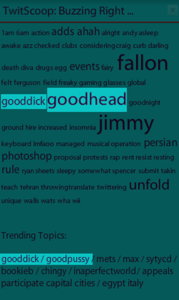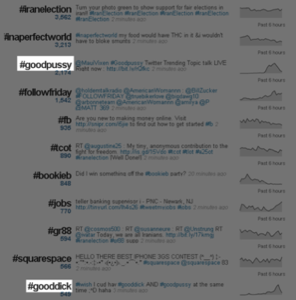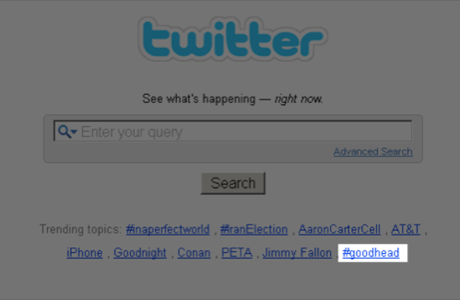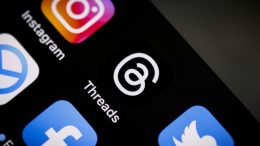Tonight, the bored and lonely segment of Twitter users banded together to push three sexy, raunchy, and totally inappropriate terms into the trending topics leaderboard.

Within minutes (as far as we could tell), both terms were removed from the list on the web interface at Twitter.com. However, they still showed up on third party services such as TwitScoop and Hashtags.org. We feel this blog’s cachet and provenance do not allow for the repetition of such phrases, so you’ll have to check out the screen shots below and gasp in mock horror along with us.



And as of this moment, none of these terms are anywhere to be found on the Twitter website, although they all were a mere 10 minutes ago.
As asinine, spammy, emo, and pointless as trending topics have been in the recent past, why now is the Twitter team choosing to censor that list on their website? Is it the overtly sexual nature of the terms, or the fact that some people would consider those words indecent or profane?
Perhaps this will serve as a nice wake-up call to the team that the trending topics list is rather broken to begin with. Manysiteslately have noted that the hashtags only serve as spam fodder, allowing questionable marketers to quickly stuff tweets with the terms to gain more attention for themselves. However, it seems at first glance that the majority of these tweets are coming from honest-to-god users, which is more frightening still. Whether or not the trending-topic tweets are spam, the topics themselves are very often sheer horror to peruse.
Should there be an algorithm for trends rather than making trending topics a pure numbers game? Should the system be fixed so that #liesboystell doesn’t win out over truly important, significant, or newsworthy content? Should tweets, like images and other kinds of content, be screened for “adult” material and user preferences be set accordingly? Or do trends really belong to the lowest common denominator?
Some will probably respond that, as a purely statistical measurement, trending topics should fall under a laissez faire system, in which case censorship of those topics would be inaccurate reporting as well as suppression of free speech.
But the world already has Nickelback and Ugg boots; must we let the masses decide on Twitter trends, as well?





















